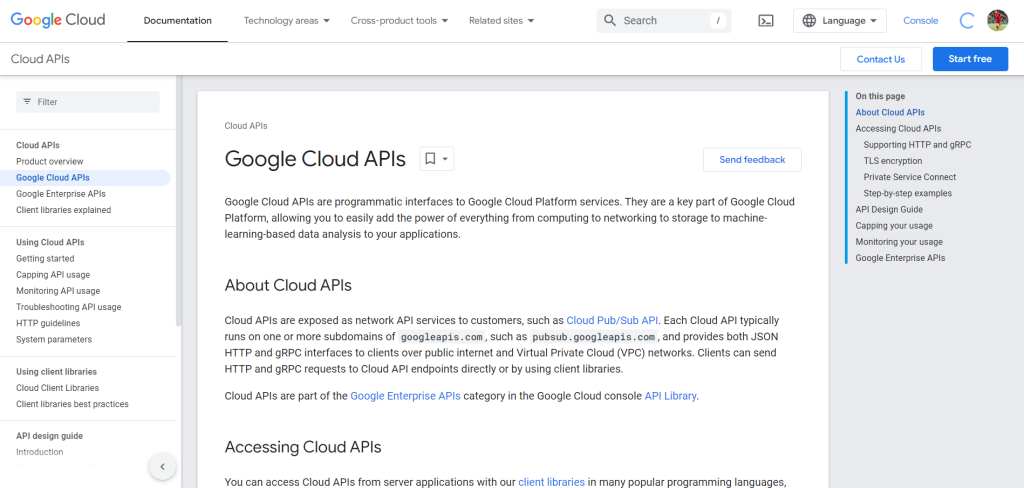Until recently, Google has been reserved about the impact of backlinks on search engine rankings. However, insights from internal documents outlining Google’s Search API ranking factors, alongside previous leaks and the ongoing US Department of Justice case, indicate a shift in understanding. A recent comprehensive study reinforces this, highlighting the substantial influence of backlinks.
According to various SEO blogs and industry experts, backlinks play an important role in determining a website’s visibility in Google’s search results. High-quality backlinks are especially important because a website needs backlinks to increase its credibility and authority, which in turn can lead to better rankings.
The consensus suggests that sites with over 1000 backlinks are statistically more likely to secure positions in Google’s top 1 to 10 results. This aligns with broader discussions within the SEO community, where the strategic acquisition of backlinks remains a cornerstone of effective digital marketing strategies aimed at optimizing search engine performance.
What Insights Does The Backlink Analysis Reveal?
According to a study conducted by Internet Marketing Ninjas in 2024, a significant finding emerged: websites that ranked within the top 10 positions on search engine results pages typically boasted over 1,000 unique domain backlinks. This observation underscores the critical role of backlinks in achieving high rankings for targeted keywords.
Supporting this, Search Engine Land highlighted that an overwhelming majority of top-ranking websites had well above 100 backlinks, with none having fewer than 50. This underscores the correlation between a robust backlink profile and higher search engine rankings.
Further analysis from various industry experts, such as Moz and Ahrefs, corroborates these findings. They argue that the quality and diversity of backlinks, especially from authoritative domains, are pivotal in determining a website’s ranking performance. Websites with diverse and high-quality backlinks tend to outperform those with fewer or lower-quality links.
Moreover, studies have shown that while quantity matters, the relevance and authority of linking domains (measured by Domain Authority or DA) are equally crucial. Google’s algorithms place significant weight on these factors when evaluating a site’s credibility and relevance to specific search queries.
In essence, the consensus among SEO service providers is clear: building a substantial number of high-quality backlinks from diverse domains is essential for securing top positions in Google’s search engine results pages. This underscores the strategic importance of link-building efforts in any comprehensive SEO strategy.
Also Read: Crafting a Winning Natural Links Profile
Who Carried Out the Research: How Reliable Are the Findings?
Internet Marketing Ninjas utilized advanced methods to analyze search engine results. Their approach involved generating 200 search phrases using AI and scraping each phrase’s first page of search results, capturing the top 10 URLs. This comprehensive process yielded a dataset comprising 1,113 unique sites.
To gauge the authority of these sites, particularly regarding backlinks, they consulted multiple sources: Ahrefs, Moz, Majestic Historic, and SEMRush. Each of these tools maintains distinct web indexes, providing varied perspectives on the backlink profiles of the sites analyzed. As highlighted in various industry discussions, these tools vary in their methodologies and coverage, influencing the results they produce.
The study’s methodology included recording the highest number of unique domain backlinks reported by any of the four sources for each site in a designated column. This approach aimed to consolidate insights into the sites’ backlink profiles, essential for understanding their SEO performance.
Building on these insights, additional research from reputable sources reinforces the correlation between high-quality backlinks and search engine rankings. According to recent analyses cited across SEO blogs and industry reports, sites with over 1,000 unique domain backlinks tend to dominate top search engine results pages (SERPs). This underscores the significance of robust backlink strategies in achieving competitive SEO outcomes.
Here’s a breakdown of the findings from their comprehensive analysis:
- None of the sites analyzed had fewer than 50 unique domain backlinks, indicating a baseline level of link authority across all entries, essential for SEO competitiveness and visibility.
- Only 3 out of 1,113 sites (0.03%) fell within the range of 50 to 100 unique domain backlinks, highlighting the rarity of sites with a moderate level of backlink authority in the study’s dataset.
- 38 out of 1,113 sites (3.4%) had between 100 and 1,000 unique domain backlinks, showcasing a modest yet distinct presence in the mid-range of link authority, which can contribute to improved search engine rankings.
- Notably, 96.3% of the sites ranking in the top 10 positions boasted over 1,000 unique domain backlinks, underscoring the significant correlation between extensive backlink profiles and high SERP placement. This finding reinforces the importance of acquiring quality backlinks for SEO success.
This structured approach and detailed analysis offer valuable insights into the SEO landscape. They underscore the crucial role of authoritative backlinks in achieving high search engine rankings and how building strong, reputable links can significantly boost a website’s visibility and credibility online.
Does The Recent Google Search API Data Leak Corroborate The Backlink Study Findings?
Based on the analysis of leaked Google Search API documents, which encompassed over 2,500 records detailing 14,014 “ranking factors,” it becomes evident that backlinks play a crucial role in search engine result pages (SERPs). Despite previous public denials, Google indeed factors in both the quality and quantity of backlinks when determining rankings.
The leaked data underscores Google’s preference for higher-quality backlinks, often referred to as Domain Authority (DA) or site authority:
DA=site Authority
This formula illustrates that websites with more potent DA, derived from reputable and fresh sources, tend to fare better in Google’s ranking algorithms. This revelation aligns with SEO best practices that advocate for acquiring links from authoritative domains and newly updated content, as these are deemed more valuable by Google’s ranking criteria.
Higher quality backlinks=Better site Authority(DA)
However, despite the clarity provided by this leaked data, trust in Google’s statements remains a contentious issue within the SEO community. Over the years, Google’s public statements have often downplayed the direct impact of backlinks on rankings, leading many practitioners to rely more on empirical evidence and personal experiences rather than on Google’s official pronouncements, which are sometimes perceived as misleading or ambiguous.
Moreover, the leaked documents shed light on another critical aspect of SEO: user engagement metrics’ role in influencing rankings, particularly clicks. Historically, Google has been cautious about directly incorporating clicks into its ranking algorithms. Nonetheless, the leaked information suggests that clicks serve as a potent signal of user interest and satisfaction:
Clicks=Ranking signal
The more clicks a webpage accrues, the stronger the indication to Google that the content is relevant and deserves higher visibility in search results. This understanding has prompted Google to develop Navboost, a specific algorithm designed to enhance the visibility of content based on user click behavior.
While the leaked Google Search API data confirms the enduring importance of traditional SEO strategies such as link building, guest posting, and digital PR, it also highlights the persistent skepticism among SEO professionals regarding Google’s transparency and reliability. The discrepancy between Google’s public statements and the operational realities revealed in the leaked documents underscores the ongoing challenge for SEO practitioners in navigating the complexities of search engine algorithms.

Also Read: Ultimate Guide To Conducting A Backlink Audit
How does The Backlink Study Affect Link Building, Digital PR, And SEO?
For years, industry experts and practitioners have debated the importance of backlinks in SEO. Despite Google’s repeated statements downplaying their direct impact on rankings, the consensus in the SEO community remains strong: backlinks matter.
In everyday terms, backlinks act like endorsements for your website in the eyes of search engines like Google. When other websites link to yours, it signals that they see value in your content. This endorsement isn’t just about recognition; it can actually boost where your site appears in Google searches. Research in SEO consistently shows that websites with more high-quality backlinks often rank higher than those with fewer or lower-quality links.
The process of acquiring these backlinks often involves strategic practices such as link building campaigns, digital PR efforts, and outreach to relevant bloggers and influencers. These activities aim to increase the quantity of links and improve their quality by focusing on websites with high Domain Authority (DA) and relevance to your niche.
You often need many backlinks to reach the top spots (ranked 1-10) in search results for competitive commercial keywords. According to many SEO experts, targeting over 1000 backlinks may be necessary for valuable keywords to compete effectively. Yet, there’s a growing focus on securing fewer yet more valuable backlinks from authoritative sources. This approach is seen as increasingly effective in boosting rankings and maintaining a competitive edge in online visibility.
Partnering with a reputable SEO agency or consultant who has established relationships with publishers and influencers can significantly streamline the process of acquiring such high-quality backlinks. These partnerships facilitate link acquisition and ensure that the links obtained are from trusted sources capable of positively influencing your search engine rankings.
While Google’s algorithms continue to evolve, backlinks remain a fundamental element of SEO strategy for improving visibility and organic traffic. Strategic link building efforts and a focus on quality over quantity are key to achieving and maintaining high rankings in today’s competitive digital landscape.
Conclusion
Recent research strongly emphasizes the pivotal role of backlinks in securing top Google SERP rankings. It is crucial to surpass the threshold of 1000 backlinks, highlighting the necessity of a focused strategy in cultivating a diverse and high-quality backlink portfolio. Website owners should prioritize acquiring authoritative links from reputable sources to elevate their search engine rankings and fortify their online presence.
This strategic approach not only enhances visibility but also fosters meaningful engagement, ensuring sustained relevance and a competitive advantage in today’s dynamic digital landscape. In conclusion, backlinks play a significant role in achieving top Google SERP rankings.
FAQs
What is the importance of recent research in backlink strategies?
Recent research helps identify current trends and best practices in backlink strategies. It can reveal which types of backlinks are most effective, how they influence rankings, and any changes in Google’s algorithm that affect backlink quality.
Can I buy backlinks to improve my rankings?
Buying backlinks is against Google’s guidelines and can result in penalties, including lower rankings or even removal from search results. Instead, it’s crucial to focus on earning high-quality backlinks through content creation, outreach, and relationship building.
How can I naturally build backlinks to my website?
Natural backlink building involves creating valuable content that others want to link to. This can include guest blogging, creating infographics, participating in industry forums, and building relationships with influencers in your niche.
How do I monitor the effectiveness of my backlink strategy?
Use tools like Google Analytics and Google Search Console to track organic traffic and keyword rankings. Tools like Ahrefs, SEMrush, or Moz can also provide insights into your backlink profile, including new backlinks and referring domains.
What are the risks of relying too heavily on backlinks?
Relying solely on backlinks may neglect other important SEO factors and can lead to an imbalanced strategy. Google’s algorithms prioritize overall user experience and relevance, so a holistic approach to SEO is essential for sustained success.
Should I focus on dofollow or nofollow backlinks?
While dofollow links pass SEO value, nofollow links are also valuable for traffic, referral traffic, and a natural link profile. A mix of both types is ideal for a healthy backlink profile.


























